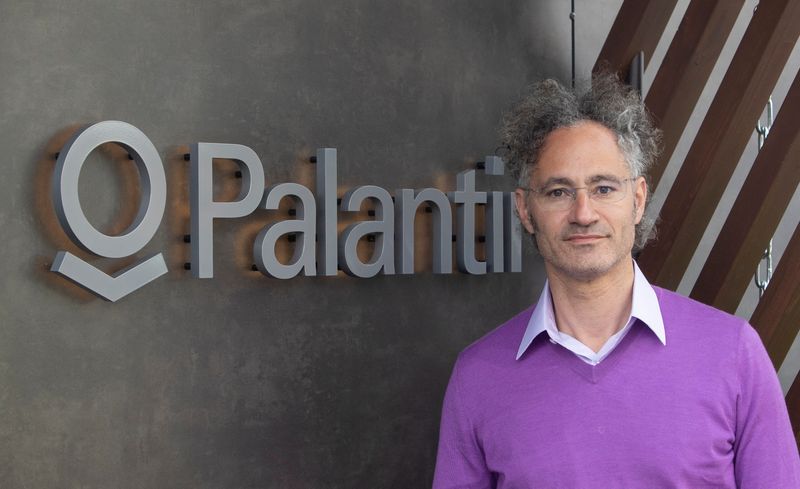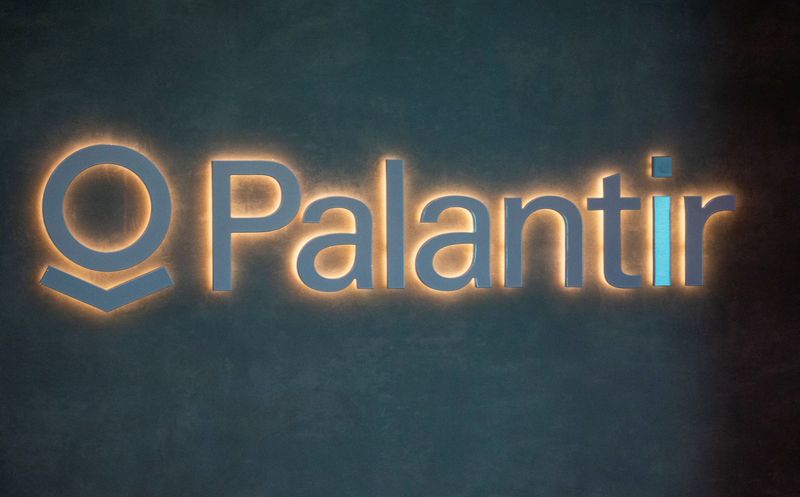By Jeffrey Dastin and Dmitry Zhdannikov
DAVOS, Switzerland (Reuters) - Palantir Technologies (NYSE:PLTR) Inc and global commodities trader Trafigura have set sights on a new market, their chief executives told Reuters on Monday: tracking carbon emissions for the oil and gas sector.
The companies are building a platform for oil majors and other commodities firms to vet the environmental impact of their supply chains, applying Trafigura's data to Palantir's operating system, known as Foundry.
The effort represents a potentially lucrative long-term opportunity at a time when Palantir's revenue outlook has fallen short of expectations, with shares trading down 57% this year.
The firm co-founded by billionaire entrepreneur Peter Thiel in 2003 to aid in U.S. counter-terrorism operations now derives almost half its sales from the private sector. BP (LON:BP) PLC is among its fossil-fuel extracting customers, which have pledged a green makeover in the coming decades.
In a joint interview at the World Economic Forum's annual meeting in Davos, Palantir's Chief Executive Alex Karp said, "This is going to be one of the biggest things we've ever done." Jeremy Weir, Trafigura's CEO, said the market is "massive. In terms of size, I think it touches everybody."
The idea grew out of a pilot last year. Trafigura's global head of carbon trading approached Palantir with a desire to better assess indirect carbon footprints, known as "Scope Three" emissions.
Making the trial into a joint marketing partnership represents a familiar playbook for Palantir. The company, which recently relocated from Palo Alto, Calif. to Denver, earlier partnered with planemaker Airbus SE to sell a "central operating system of the airline industry," according to Palantir's latest annual report.
Customers can subscribe to the new platform and take part in what Palantir and Trafigura are calling a consortium. They did not disclose financial terms.
Concerns about energy security fueled by Russia's invasion of Ukraine have not dampened interest in sustainability, said Weir. "We've got a severe bump in the road, but we still have to decarbonize," he said.

For Palantir, the war, which Moscow has called a "special operation," has meanwhile created potential for other products it developed, such as secure data transfer across allies.
"You'll have to use your imagination to figure out how those things may be in use, but we play a crucial role in the security of the West," Karp said.
